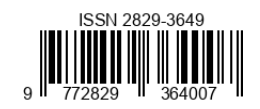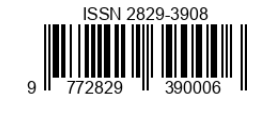Optimization of Quality Management in Quality Based Curriculum Development
DOI:
https://doi.org/10.56910/literacy.v4i1.1983Keywords:
authentic assessment, Evaluation, formative assessment, quality-based curriculum, summative assess-mentAbstract
Evaluation is a crucial component in the development and implementation of quality-based curricula. This study explores the effectiveness of various evaluation methods, including formative, summative, and authentic assessments, in measuring curriculum success. The results indicate that formative assessment positively contributes to students' understanding, while summative assessments often fail to accurately reflect students' abilities. Authentic assessments have proven to enhance student motivation and preparedness for real-world challenges. Student involvement in the evaluation process, the use of evaluation data for continuous improvement, and teacher training in diverse evaluation methods are key factors in enhancing evaluation effectiveness. This research emphasizes the importance of selecting appropriate evaluation methods aligned with curriculum objectives to achieve optimal educational outcomes. Thus, the findings provide valuable insights for curriculum development and evaluation practices in educational institutions.
References
A. Sa’dullah, “Public relations strategy based on parental participation in improving educational services,” Sindan Journal, vol. 3, no. 3, pp. 68–80. [Online]. Available: https://doi.org/10.28926/sinda.v3i3.1160
A. Kahar, Independent Learning for Non-Formal Education: Theory, Practice, and Assessment, Bandung: Indonesia Emas Group, 2024, pp. 3–20.
Ahmad, “Modeling,” Journal of PGMI Study Program, vol. 11, no. 1, pp. 1197–1210, Mar. 2024. [Online]. Available: https://www.jurnal.stitnualhikmah.ac.id/index.php/modeling/article/view/2536
A. D. Rangkut, “Effectiveness of PAI teacher training in improving pedagogical competence in elementary schools,” Journal of Edu-cation Quality, vol. 2, no. 3, pp. 343–347, 2024. [Online]. Available: https://ejournal.edutechjaya.com/index.php/jkp/article/view/1034
A. Azri and Q. Raniyah, “The role of technology and teacher training in improving the quality of education,” Journal of Social and Humanities Education, vol. 3, no. 4, pp. 4859–4884, 2024. [Online]. Available: https://publisherqu.com/index.php/pediaqu/article/view/1397
D. Lutfiana, “Implementation of independent curriculum in mathematics learning at Diponegoro Banyuputih vocational high school,” Vocational: Journal of Vocational Education Innovation, vol. 2, no. 4, pp. 310–319, 2022. [Online]. Available: https://doi.org/10.51878/vocational.v2i4.1752
M. R. Fuadiy, “Learning evaluation as a literature study,” Dimar: Journal of Islamic Education, vol. 3, no. 1, pp. 173–197, 2021. [Online]. Available: https://doi.org/10.58577/dimar.v3i1.83
G. Y. Arta, “Assessment in education: Concepts, approaches, principles, types, and functions,” Journal of Education, Language and Culture, vol. 3, no. 3, pp. 170–190, 2024. [Online]. Available: https://doi.org/10.55606/jpbb.v3i3.3925
G. S. Aji and I. K. Mala, “Improving human resource quality to achieve company competitive advantage in the digital era: Trends, innovations, and challenges,” Journal of Management and Creative Economy, vol. 2, no. 3, pp. 01–17, 2024. [Online]. Available: https://doi.org/10.59024/jumek.v2i3.357
E. Hermansyah, “Not objects, students are subjects of education: A portrait of student participation in policy formulation in schools,” Journal of Educational Policy Research, vol. 17, no. 1, 2024. [Online]. Available: https://doi.org/10.24832/jpkp.v17i1.886
A. Isti'ana, “Integration of technology in Islamic education learning,” Indonesian Research Journal on Education, vol. 4, no. 1, pp. 302–, 2024. [Online]. Available: https://doi.org/10.31004/irje.v4i1.493
I. Hassanah, I. Pratidina, S. Untari, B. Sumardjoko, and E. F. Ati, “The role of supervision in curriculum implementation to improve the quality of education,” Didaktika: Journal of Education, vol. 13, no. 2, pp. 2119–2130, 2024. [Online]. Available: https://www.jurnaldidaktika.org/contents/article/view/669
E. B. S. Kase, “Implementation of educational technology in improving the quality of primary school teachers' teaching,” Journal of Education and Teaching Review, vol. 7, no. 3, pp. 8378–8385, 2024. [Online]. Available: https://journal.universitaspahlawan.ac.id/index.php/jrpp/article/view/30244
M. Marzuki, “Analysis of student learning outcome assessment of natural science subjects in the independent curriculum,” Journal of Education and Teaching Review, vol. 6, no. 4, pp. 2771–2780, 2023. [Online]. Available: https://journal.universitaspahlawan.ac.id/index.php/jrpp/article/view/22252
N. Selvia, Asfiana, and Fitriyani, “Implementation of summative evaluation in social studies subjects in elementary schools: Chal-lenges and solutions,” Al-Hasib: Journal of Islamic Education Management, vol. 1, no. 2, pp. 69–79, 2024. [Online]. Available: https://journal.salahuddinal-ayyubi.com/index.php/AHJP/article/view/203
A. Priyono, Developing Teacher Professionalism in the New Curriculum Era, Jakarta: Publisher Education, 2020.
P. Pumanti, “Exploring the integration of IB programme and independent curriculum in the Pancasila student profile strengthening project with an inquiry approach at SD Tunas Muda School,” Journal of Primary Education, vol. 6, no. 1, pp. 449–459. [Online]. Available: https://ejurnals.com/ojs/index.php/jpa
E. R. Nazar, N. Nasir, I. Bagea, and Abubakar, “Opportunities and challenges of implementing the independent learning curricu-lum: An interview study in changing and independent schools,” Kelola: Journal of Educational Management, vol. 11, no. 1, pp. 18–31, 2024. [Online]. Available: https://doi.org/10.24246/j.jk.2024.v11.i1.p18-31
T. Bahar, N. Nasyifa, A. Fadhillah, and A. Mukhlasin, “The role of organizational management in educational progress,” Learning Dynamics: Journal of Education and Language, vol. 1, no. 3, pp. 284–300, 2024. [Online]. Available: https://doi.org/10.62383/dilan.v1i3.516
N. P. Wahyuni, A. A. G. Agung, and N. L. G. E. Sulindawati, “KAMI (self-concept, pedagogical competence, achievement motiva-tion, and school climate) improve student learning outcomes,” Scientific Journal of Teacher Professional Education, vol. 7, no. 1, pp. 60–74, 2024. [Online]. Available: https://doi.org/10.23887/jippg.v7i1.73453
Downloads
Published
How to Cite
Issue
Section
License
Copyright (c) 2025 LITERACY : International Scientific Journals of Social, Education, Humanities

This work is licensed under a Creative Commons Attribution-ShareAlike 4.0 International License.







